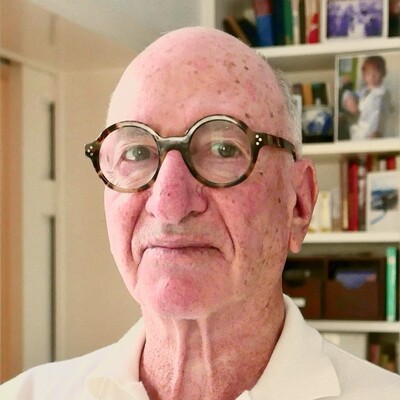Corruption: The Global Killing Machine
Corruption so often reflects extraordinary greed and an unquenchable lust for power. If unchecked, it also produces death on a vast scale.
June 6, 2023

A Global Ideas Center, Strategic Assessment Memo (SAM) from the Global Ideas Center
You may quote from this text, provided you mention the name of the author and reference it as a new Global Ideas Center, Strategic Assessment Memo (SAM) published by the Global Ideas Center in Berlin on The Globalist.
Corruption kills. The death toll mounts by the day in Ukraine as the kleptocratic regime run by President Vladimir Putin clamps-down ever more viciously on domestic opposition to his war, while his most influential supporters – in public service, notably in the military, intelligence and the judiciary, as well as in business – voice their strong support. Why?
Buying loyalty
The reason is that all of these ardent supporters have benefited from the massive thefts of national tax and other revenues in return for their loyalty.
While Western sanctions have been imposed on the most prominent of these supporters, now embracing more than 500 individuals, the foreign assets of these Russian crooks, running into hundreds of billions of dollars, remain largely untouched. The loyalists have no reason to turn on Putin, and so the killing continues.
Corruption – the abuse of public office for personal gain – so often sees extraordinary greed, an unquenchable lust for power and exceedingly dangerous paranoia. If unchecked, then it produces death on a vast scale. People are dying in many countries because of corruption as I write these words.
Just paying lip-service
Western governments, however, have largely failed to focus sharply enough on the deadly hand of corruption.
There was a brief routine mention of corruption buried in paragraph 49 of the communique that followed the recent Group of 7 meeting of leaders of the leading industrial countries in Hiroshima, Japan. Yet, the violence done to the victims of corruption was barely mentioned at the prestigious gathering of government officials and academics in late May in Paris, France at the annual OECD anti-corruption conference.
International cooperation to curb corruption is, at best, inching forwards. For example, with an inspirational new declaration by the EU Commission, or the modest anti-money laundering progress as the U.S. Treasury slowly formulates regulations to unmask the true owners of trusts and holding companies.
These are registered from Delaware and South Dakota to the Cayman Islands and Liechtenstein. The rhetoric is impressive, but the actions that follow are frustratingly slow.
The killing takes many forms
We have long known how to build buildings that can withstand earthquakes. When tens of thousands of people were killed and millions made homeless in earthquakes, for example, in Turkey, Mexico Haiti, and China in recent times, then corruption was the cause. Builders bribed official inspectors so that they could proceed with unsafe construction.
Turkey’s President Recep Tayyip Erdogan just won another election, despite his long-term support of the construction industry, the easing of restrictions on property developers and the failure to enforce basic building-code standards. This contributed directly to the deaths of many of those 50,000 people who perished in the recent earthquake.
We know how to test the safety of medicines, but bribes are paid and the testing set aside. When ministers of health and their cronies in Africa and Asia buy out-of-date pharmaceuticals, or Chinese-made counterfeits, then those officials profit and many people die.
For example, a report by the United Nations in January 2023 highlighted some estimates for sub-Saharan Africa by the World Health Organization that and noted that: “Between 72,000 and 267,000 deaths per year are linked to falsified and substandard anti-malarial medicines. In addition, up to 169,271 are linked to falsified and substandard antibiotics used to treat severe pneumonia in children.”
Deepening poverty
When top government officials divert huge sums from the national budget to enrich themselves and their associates, then there are not enough public funds available to support the very poorest citizens to adequately finance sanitation and health services – and so millions of people die.
The situation has become still more acute in recent times when the combined impact of the Covid-19 pandemic, a surge in global inflation and rising international interest rates have sharply increased economic difficulties in many developing countries. In these situations, in particular, every dollar stolen by the corrupt adds gravely to the public hardship.
The World Bank asserted in a 2022 report that:
“The recent crises have pushed the world further off track from the global goal of ending extreme poverty by 2030. Given current trends, 574 million people – nearly 7% of the world’s population – will still be living on less than $2.15 a day in 2030. And the challenge is made harder by the fact that extreme poverty is concentrated in parts of the world where it will be hardest to eradicate: in Sub-Saharan Africa, in conflict-affected areas and in rural areas.”
Refugee victims
In many of the poorest countries, many of which are seen to have highly corrupt governments according to the 2022 Transparency International Corruption Perceptions Index, the combination of high levels of violence (including war in some situations) and extortion of the poor by public officials and gangs that thrive in basically lawless conditions, are now forcing more people than before from their homes.
UNHCR estimated last year that “the number of people forcibly displaced is now 103 million, and over 32.5 million are refugees.”
Too many of these refugees die in the deserts and jungles that they must cross, or in the Mediterranean or at the hands of thugs that seek to exploit them. To fail to see connections between this humanitarian disaster and corruption is to ignore reality.
When warlords feud over the control of national assets and unleash civil wars, then death abounds as is so evident, for example, in Sudan today. These civil wars are all about political power and access to national assets.
Corruption is a critical issue as military leaders, be it in Egypt or Myanmar, today brutally quash hopes for democracy in their countries and plunder their nation’s economic assets.
And then, the illicit trade in arms, so vital to supporting rival factions in many conflicts, so often involves opaque sales agreements and suspicions of corruption, as illustrated by a recent investigation by the OCCRP group of journalists into West African arms deals.
Conclusion
As the United Nations, the OECD, the G7 and other global institutions that strive to secure peace and multilateral cooperation declare their good intentions, they pay mere lip service to anti-corruption and do so at the peril of so many who daily are the victims of corruption across our planet.
The leaders of these institutions inspire with their soaring anti-graft rhetoric, but their multiple failures to follow through with decisive actions means that graft is killing people each and every day.
Takeaways
Corruption so often reflects extraordinary greed and an unquenchable lust for power. If unchecked, it also produces death on a vast scale.
Western government have largely failed to focus sharply enough on the deadly hand of corruption.
The UN, the OECD, the G7 and other global institutions that strive to secure peace and multilateral cooperation declare their good intentions. But they pay mere lip service to anti-corruption.
As the death toll mounts by the day in Ukraine, Putin’s most influential supporters continue to voice their support. The reason is that they have benefited from the massive thefts of national tax and other revenues in return for their loyalty.
Corruption is a critical issue as military leaders, be it in Egypt or Myanmar, today brutally quash hopes for democracy in their countries and plunder their nation's economic assets.
A Global Ideas Center, Strategic Assessment Memo (SAM) from the Global Ideas Center
You may quote from this text, provided you mention the name of the author and reference it as a new Global Ideas Center, Strategic Assessment Memo (SAM) published by the Global Ideas Center in Berlin on The Globalist.


